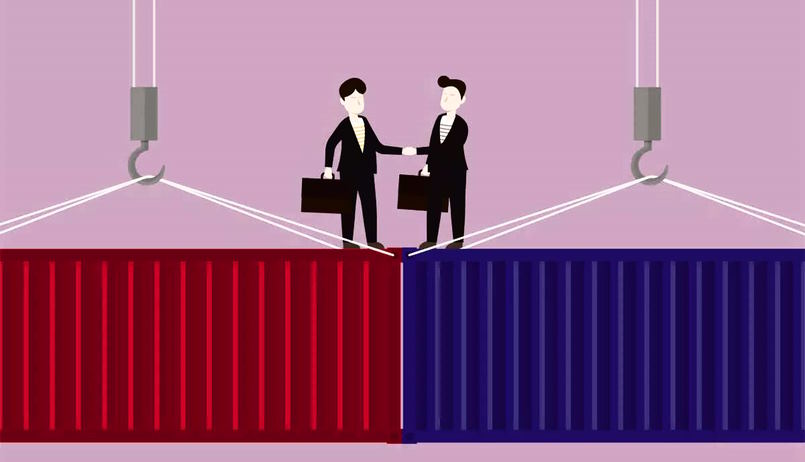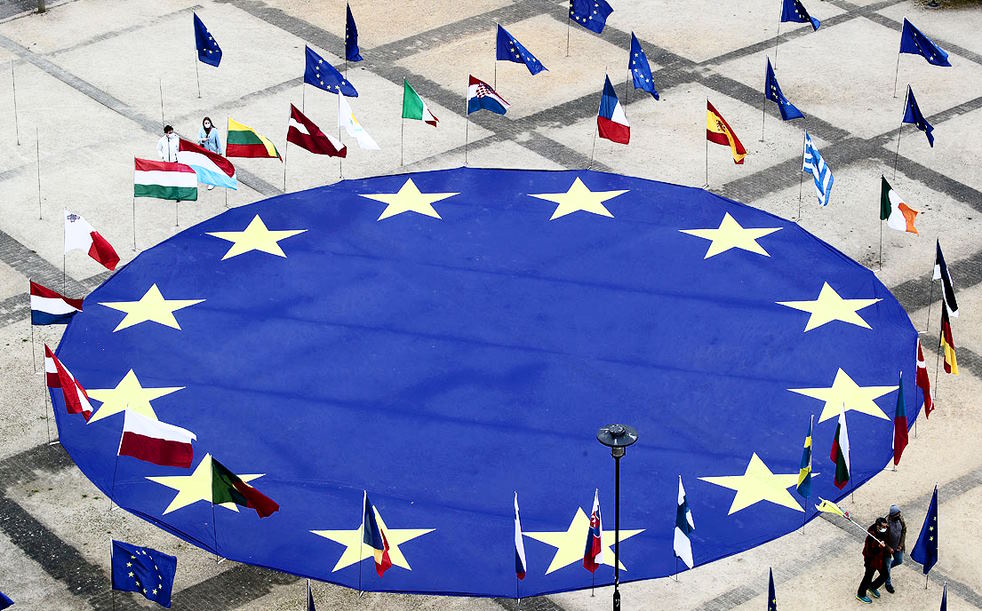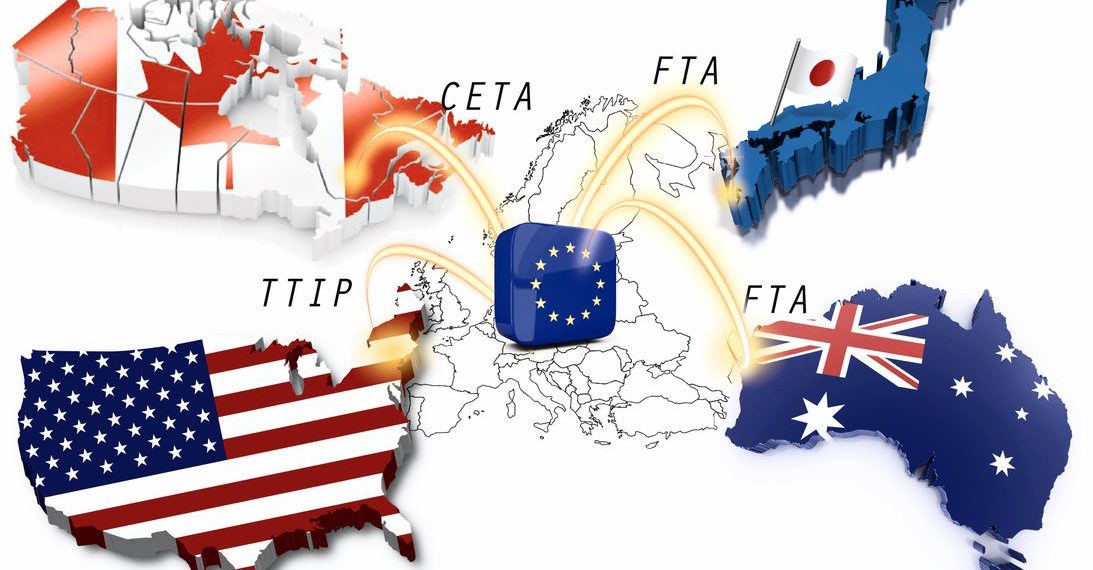European Free Trade Agreements: Expanding Business Opportunities
The European Union (EU) and the European Free Trade Association (EFTA) have established a network of free trade agreements with countries around the world, creating a multitude of business opportunities for companies operating in Europe and beyond. These agreements have significantly impacted global trade dynamics, providing businesses with increased access to new markets, reduction of trade barriers, and opportunities for innovation and growth. We will examine the challenges and risks that businesses may face, and provide strategies for leveraging these agreements to drive success in today’s complex international trade landscape.
Benefits of European Free Trade Agreements for Businesses
The benefits of European free trade agreements (FTAs) for businesses are far-reaching and can significantly impact their operations and growth prospects. Let’s explore six key benefits that these FTAs offer to businesses operating in Europe and beyond.
Access to new markets and increased market share: European FTAs provide businesses with access to new markets that may have been previously restricted or subject to high trade barriers. By eliminating or reducing tariffs and other trade barriers, FTAs create opportunities for businesses to expand their customer base and increase their market share in these new markets. This can open up avenues for growth, diversification, and increased profitability.

Reduction of trade barriers and tariffs: FTAs typically involve the elimination or reduction of trade barriers such as tariffs, quotas, and non-tariff barriers, making it easier and more cost-effective for businesses to trade with partner countries. This can result in lower production costs, increased competitiveness, and improved profitability. Businesses can also benefit from streamlined customs procedures, reduced administrative burdens, and simplified regulatory frameworks, making it easier to navigate international trade and comply with regulations.
Enhancement of competitiveness and innovation: European FTAs encourage competition by exposing businesses to new markets and competitors. This can stimulate innovation, as businesses strive to differentiate themselves and offer unique products or services to gain a competitive edge. Access to foreign markets can also provide opportunities for collaboration, knowledge sharing, and technology transfer, which can further enhance a company’s competitiveness and innovation capabilities.
Simplification of customs procedures and regulatory frameworks: European FTAs often include provisions to simplify customs procedures and harmonize regulatory frameworks, making it easier for businesses to trade across borders. This can result in reduced administrative burdens, faster clearance times, and increased predictability and transparency in trade processes. Such simplification can lower transaction costs, save time, and increase efficiency, which are all beneficial to businesses engaged in international trade.
Strengthening of supply chains and business networks: FTAs can strengthen supply chains and business networks by facilitating the movement of goods, services, and investments between partner countries. Businesses can leverage these agreements to establish strategic partnerships, source inputs from different markets, and optimize their supply chain operations. This can enhance supply chain resilience, reduce risks, and create new business opportunities by tapping into diverse markets and resources.
Opportunities for foreign direct investment: European FTAs often include provisions to protect and promote foreign direct investment (FDI). This can provide businesses with opportunities to invest in new markets, expand operations, and establish a presence in foreign markets. FDI can enable businesses to access new technologies, resources, and markets, and can also create job opportunities, promote economic growth, and enhance competitiveness.
Strategies for Businesses to Leverage European Free Trade Agreements
As businesses look to leverage European free trade agreements (FTAs), it’s important to develop strategic approaches that capitalize on the opportunities presented by these agreements. Here are six strategies that businesses can adopt to maximize their benefits from European FTAs.
Conducting market research and identifying opportunities: Businesses should conduct thorough market research to identify potential markets and opportunities offered by European FTAs. This includes understanding the tariff reductions, market access provisions, and regulatory requirements under each agreement. By identifying target markets and understanding their needs, preferences, and competitive landscape, businesses can tailor their strategies and offerings to effectively tap into these markets and gain a competitive edge.
Building strategic partnerships and networks: Strategic partnerships and networks can be key to leveraging European FTAs. By forming alliances with local businesses, distributors, agents, or other relevant stakeholders in target markets, businesses can benefit from local market knowledge, networks, and resources. Collaborative efforts can lead to increased market access, shared costs and risks, and enhanced competitiveness. Building strong partnerships and networks can help businesses navigate cultural, regulatory, and logistical challenges, and facilitate business expansion in new markets.

Understanding and complying with regulations and standards: Regulations and standards vary across different markets, and businesses need to thoroughly understand and comply with them to successfully leverage European FTAs. This includes understanding customs procedures, rules of origin, product standards, labeling requirements, and other relevant regulations. Non-compliance can result in delays, penalties, or even exclusion from preferential treatment under FTAs. Therefore, businesses need to invest in understanding and complying with the regulatory frameworks of target markets to ensure smooth operations and maximize FTA benefits.
Diversifying supply chains and mitigating risks: Diversifying supply chains can help businesses mitigate risks and enhance resilience when leveraging European FTAs. Depending on a single market or source of supply may expose businesses to risks such as geopolitical tensions, trade disputes, or disruptions in the supply chain. By diversifying their sourcing, production, and distribution networks, businesses can spread risks and reduce vulnerabilities. This can involve exploring alternative markets, suppliers, transportation routes, or inventory management strategies to ensure continuity of operations and maximize the benefits of FTAs.
Leveraging government support and resources: Governments often provide support and resources to businesses for leveraging FTAs. This can include export promotion programs, financial incentives, market access facilitation, and trade-related information and resources. Businesses should proactively explore and leverage these government initiatives to gain competitive advantage and optimize their FTA strategies. This can involve engaging with relevant government agencies, participating in trade missions or trade shows, and staying updated with FTA-related developments and opportunities.
Investing in innovation and competitiveness: To fully leverage European FTAs, businesses need to continually invest in innovation and competitiveness. This includes enhancing product quality, developing unique value propositions, adopting advanced technologies, and optimizing business processes. Innovation and competitiveness are critical to differentiating businesses in the global marketplace and maximizing their benefits from FTAs. Businesses should constantly evaluate and enhance their capabilities, and stay ahead of the competition by continuously innovating and improving their products, services, and operations.

